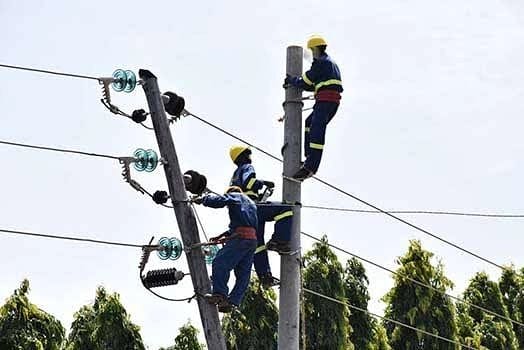NAIROBI,Kenya, Dec, 13 – President Uhuru Kenyatta has revealed that the ministry of energy is on track to ensure that the cost of electricity in the country is reduced by over 30 per cent in line with recommendations of a presidential task force on power purchase agreements.
Kenyans, among them individual consumers and enterprises had expressed concern over the ever rising cost of electricity that had affected livelihoods and thousands of business nationwide.
Now, Kenyatta says that he will honour his pledge to the nation and that the reduction of the cost of electricity will be implemented in two tranches of 15 per cent each; with the first 15 per cent achieved through initial actions focusing on system and commercial losses, to be reflected in the December bills, and a further 15 per cent reduction, in the first quarter of 2022.
“In realizing the second tranche of the reduction in power bills, I note that the Ministry of Energy has initiated engagements with Independent Power Producers aimed at renegotiation of power purchase agreements; so as to give better value for money for consumers,” said Kenyatta.
A report by a presidential task force mandated to review the cost of electricity in the country led by John Ngumi, recommended the review and renegotiation with Independent Power Producers (IPPs) to secure an immediate reduction in Power Purchase Agreements (PPA) tariffs within existing contractual arrangements while at the same time recommending the immediate cancellation of all unconcluded negotiations of Power Purchase Agreements and ensure future PPAs are aligned to the Least Cost Power Development Plan (LCPDP).
The consequence of the proposed interventions is that a consumer who previously spent Sh500 per month on electricity shall by December 31, 2021 pay Sh330 per month.
This cost reduction will be achieved through the reduction of the consumer tariffs from an average of Sh24 per kilowatt-hour to Sh16 per kilowatt-hour which is about two-thirds of the current tariff.
Already, the cost of electricity per unit of power is said to be the highest in five years.
In November, Energy Cabinet Secretary Amb. Dr. Monica Juma revealed that stakeholders in the energy sector are well in course to ensure that recommendations by a presidential task force to ensure the price of electricity in the country is lowered has been fulfilled.
Juma while meeting stakeholders said that renegotiations of Power Purchase Agreements (PPAs) are not unique to Kenya and that the goal remains to seek an equitable situation where investment responds to the needs of the country.
“This administration is keen to engage with this process in an orderly and structured manner. I want at this point to note and thank the Independent Power Producers that have already approached me and expressed their readiness to engage. I welcome their demonstration of good faith,” said Juma in November.
The CS further called on the Independent Power producers (IPPs) to come forward to the negotiating table and engage towards,”win– win solutions,” that would secure a sustainable energy sector in the country.
A multi-agency team comprising of the DCI, Financial Reporting Center (FRC), Assets Recovery Authority and other investigative agencies has been assembled to investigate alarming system losses within KPLC, procurement practices, insider trading, conflict of interests and suspect transactions involving KPLC staff and others.
For a while, KPLC has been running at a loss, with all indicators pointing to ineffective Power Purchase Agreements (PPAs) that have left the company heavily indebted while ironically paying for excesses energy it does not need in take-or-pay arrangements blamed on poor negotiations and vested interests.
Besides high fixed capacity charges amounting to Sh 47 billion, the PPAs are bound by Commercial Operation Dates (CODs) that are not aligned with the company’s power demand. This has often resulted in excess power generation even when the demand is low.
In the 2019/2020 Financial year, KPLC posted a loss before tax of Sh7 billion. Its negative working capital position for the fourth consecutive year has also raised substantial doubt about its ability to sustain operations.
The system losses stood at 23.47 percent, exceeding the 19.99 percent limit approved by the Energy and Petroleum Authority (EPRA). This is attributed to a lack of internal control measures put in place to mitigate losses including governance.
Want to send us a story? Contact Shahidi News Tel: +254115512797 (Mobile & WhatsApp)


